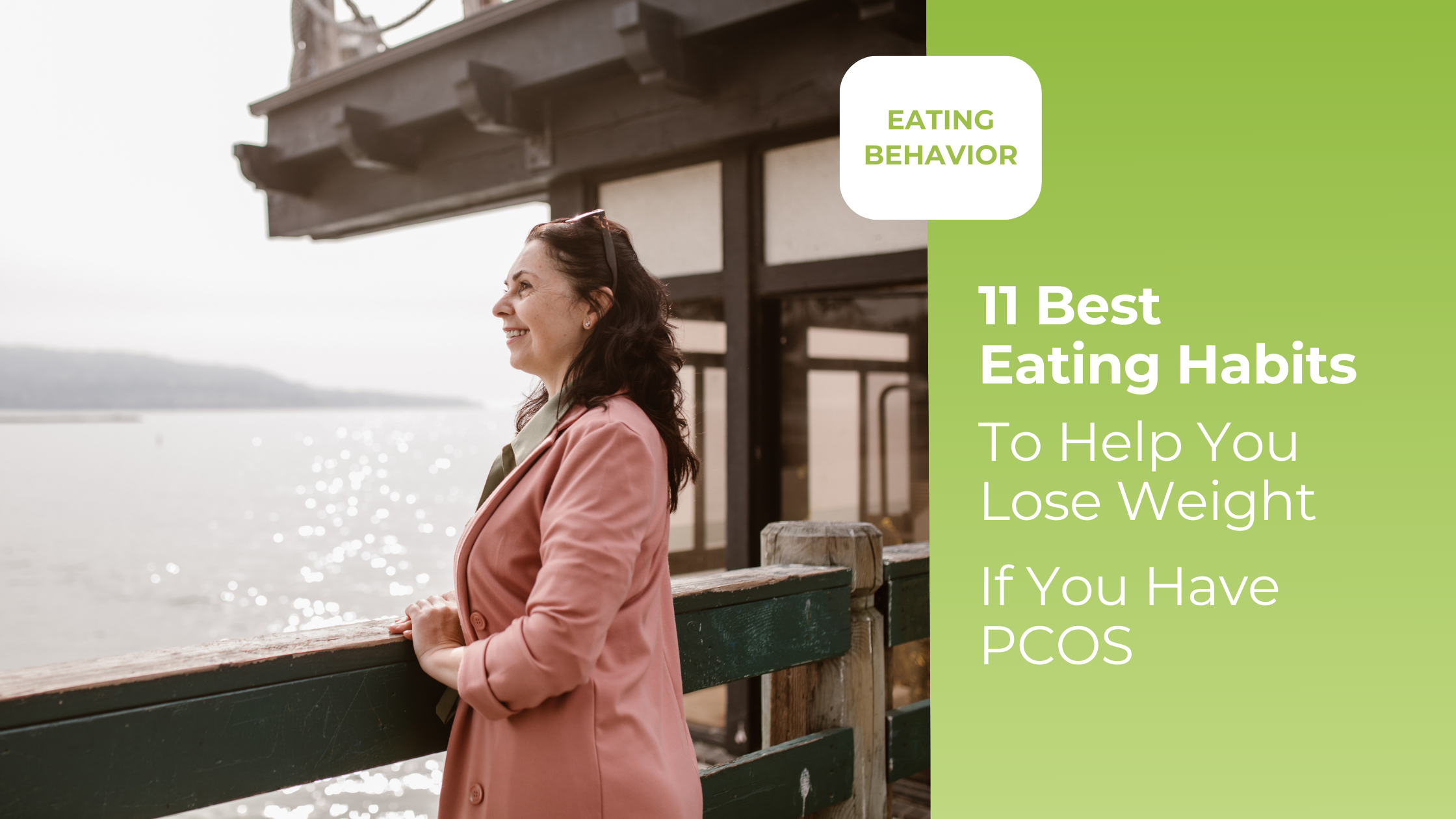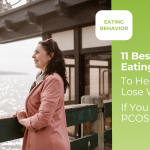If you’ve been diagnosed with PCOS, you may have found that losing weight can be a real challenge. But don’t despair! With some lifestyle changes and persistence, you can reach your weight loss goals. Here are 11 healthy eating habits that can help you shed excess pounds if you have PCOS:
Table of Contents
- Eat more often
- Choose healthy fats
- Avoid processed and sugary foods
- Eat regular, balanced meals
- Incorporate physical activity into your daily routine
- Practice mindful eating
- Get enough sleep
- Reduce stress
- Consider a low-carb diet
- Eat a variety of foods
- Work with a healthcare professional or registered dietitian
1. Eat more often
Snacking on smaller, more frequent meals can help regulate blood sugar levels and prevent insulin spikes, which can contribute to weight gain in people with PCOS. Try to eat every 2-3 hours to keep your energy levels steady and prevent overindulging at meals. Some great snack options include a handful of nuts, a piece of fruit or some veggies, or a small serving of Greek yogurt.
2. Choose healthy fats
Healthy (unsaturated) fats, such as those found in avocados, nuts, and olive oil, can help improve insulin sensitivity and reduce inflammation in people with PCOS. Plus, they’ll keep you feeling full and satisfied after eating. Just remember to keep portion sizes in check, as even healthy fats can contribute to weight gain if consumed in excess.
3. Avoid processed and sugary foods
Processed and sugary foods can contribute to weight gain and worsen insulin resistance in people with PCOS. Instead, opt for whole, unprocessed foods that are rich in nutrients–especially fiber. This includes foods like whole grains, fruits and vegetables, lean proteins, and healthy fats.
4. Eat regular, balanced meals
Skipping meals or going long periods without eating can disrupt blood sugar levels and lead to overeating later on. Eating regular, balanced meals can help keep blood sugar levels stable and support weight loss. Aim for three main meals per day and include a protein, a complex carbohydrate, and a healthy fat at each meal. For example, you could have grilled chicken, sweet potato, and broccoli for lunch, or a turkey and spinach wrap with avocado for a snack.
5. Incorporate physical activity into your daily routine
Exercise can help improve insulin sensitivity and reduce inflammation in people with PCOS. Aim for at least 30 minutes of moderate-intensity exercise, such as brisk walking or cycling, most days of the week. Don’t worry, you don’t have to hit the gym to get your sweat on – there are plenty of ways to get active at home, such as dancing to your favorite tunes, going for a bike ride, or doing an at-home workout video. Just be sure it’s something you enjoy. You’ll get the benefits of the workout and have fun doing it!
6. Practice mindful eating
Paying attention to your food and being present while you eat can help you tune in to your body’s hunger and fullness signals, which can support weight loss. That means no more eating in front of the TV or scrolling through social media while you munch. Take the time to sit down and savor your meals, and you’ll be less likely to overeat.
7. Get enough sleep
Lack of sleep can lead to weight gain and worsen insulin resistance in people with PCOS. Aim for 7-9 hours of quality sleep per night. Lack of sleep can cause fatigue, which can lead to poor food choices. If you have trouble falling or staying asleep, try creating a relaxing bedtime routine, such as reading a book or taking a warm bath, and avoid screens for at least an hour before bed.
8. Reduce stress
Chronic stress can disrupt hormone balance and worsen symptoms of PCOS. Practice stress-reducing techniques, such as deep breathing, meditation, and yoga, to help manage stress and support weight loss. And if all else fails, a little bit of dark chocolate (in moderation, of course!) can do wonders for stress relief.
9. Consider a low-carb diet
A low-carb diet can help improve insulin sensitivity and support weight loss in people with PCOS. However, it’s important to make sure you’re still getting enough nutrients and not cutting out any essential food groups. Talk to a healthcare professional or registered dietitian before making any major changes to your diet.
10. Eat a variety of foods
Eating a diverse range of foods can help ensure you’re getting all the nutrients you need to support your health. This includes a mix of fruits and vegetables, whole grains, lean proteins, healthy fats, and fiber. Studies have shown that those who had a higher fiber diet were able to reduce insulin resistance and had lower body fat. So, don’t be afraid to try new foods and flavors – variety is the spice of life, after all! Just make sure to choose mostly whole, unprocessed foods, and limit your intake of processed and sugary options.
11. Work with a healthcare professional or registered dietitian
A healthcare professional or registered dietitian can provide personalized guidance and support to help you manage your PCOS, and achieve your weight loss goals. They can help you create a healthy eating plan that works for you and your unique needs, and provide support and accountability along the way.
We hope you have found our tips helpful and useful. Even though it might seem like a lot of work, we promise that once you start implementing these habits in your daily life it will be easy as pie! You should start seeing positive results after a few weeks of sticking to this routine. Remember to be patient and persistent, and don’t be afraid to seek support from healthcare professionals or registered dietitians if you need it. If you’re looking for an easy way to track your meals and get personalized nutrition guidance, you should check out the Healthi app. With Healthi, you can log your meals, track your progress, and get tailored recommendations based on your specific needs and goals.




















